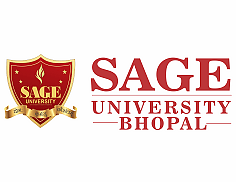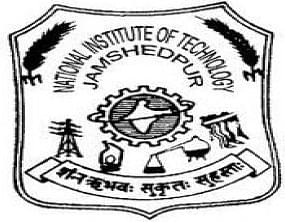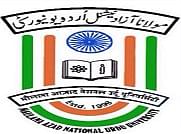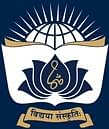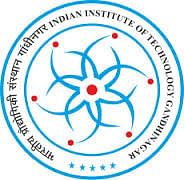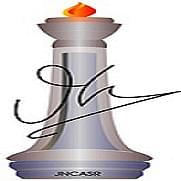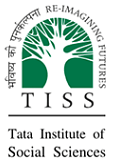Introduction about Ph. D in history
A Ph.D. in History from the top best affordable college in India is an advanced academic degree that
focuses on the comprehensive study and interpretation of past events, societies,
cultures, and their evolution over time. Historians who pursue a Ph.D. delve
deeply into primary sources, secondary literature, and various methodologies to
develop original research and contribute new insights to our understanding of
the past.
During a Ph.D. program in History, students typically engage in rigorous
coursework, seminar discussions, and independent research under the guidance of
faculty mentors. The coursework often covers a wide range of historical
periods, regions, and themes, allowing students to develop a broad
understanding of historical methods and theories while also specializing in
their chosen areas of interest.
One of the central components of a Ph.D. in History is the dissertation,
a substantial piece of original research that makes a significant contribution
to the field. This research is often based on extensive archival work, analysis
of primary sources, and critical engagement with existing scholarship. Writing
a dissertation requires not only advanced research skills but also the ability
to construct coherent arguments and present findings in a clear and persuasive
manner.
Upon completing a Ph.D. in History, graduates are prepared for careers
in academia, research institutions, museums, archives, government agencies, and
other fields where expertise in historical analysis and critical thinking is
valued. Beyond academia, historians with a Ph.D. often work as educators,
writers, consultants, and public historians, contributing to the broader
understanding of the past and its relevance to contemporary society.
What is admission process for admission in Ph. D in
history?
The admission process for a Ph.D. in History at the top 5 college in India typically involves several steps, which may
vary slightly depending on the specific institution and program. Here's a
general overview:
·
Research and Preparation:
Prospective Ph.D. students should research various universities and programs to
find ones that align with their research interests, academic goals, and career aspirations.
They should also familiarize themselves with the specific admission
requirements and deadlines for each program.
·
Meet Prerequisites: Most Ph.D. programs in
History require applicants to have a bachelor's and/or master's degree in
History or a related field. Some programs may also have specific GPA
requirements or prerequisite coursework.
·
Take Standardized Tests: Many
universities require applicants to submit scores from standardized tests such
as the GRE (Graduate Record Examination) as part of their application. However,
some programs may waive this requirement or place less emphasis on standardized
test scores.
·
Prepare Application Materials:
Applicants typically need to submit a variety of materials as part of their
application package. This often includes:
·
Transcripts: Official transcripts from all previous
undergraduate and graduate institutions attended.
·
Letters of Recommendation: Usually three letters
from professors or professionals who can attest to the applicant's academic
abilities and potential for success in a Ph.D. program.
·
Statement of Purpose: A written statement outlining
the applicant's academic background, research interests, career goals, and
reasons for pursuing a Ph.D. in History.
·
Writing Sample: A sample of the applicant's
academic writing, such as a research paper or thesis chapter, to demonstrate
their ability to conduct historical research and write at a graduate level.
·
Submit Application: Applicants must submit
their application materials by the program's deadline through the university's
online application portal or other specified method.
·
Interview (if required): Some
programs may require applicants to participate in an interview as part of the
admissions process. This interview may be conducted in person, over the phone,
or via video conference and allows the admissions committee to further assess
the applicant's qualifications and fit for the program.
·
Wait for Decision: After submitting their
application, applicants typically have to wait several weeks to several months
to receive a decision from the admissions committee. Admitted students will
receive an official offer of admission, while others may be placed on a waitlist
or denied admission.
·
Acceptance and Enrollment: Once
admitted, students must formally accept the offer of admission and complete any
additional enrollment steps required by the university, such as submitting a
deposit or completing a background check.
What is eligibility criteria for admission in Ph. D
in history?
The eligibility criteria for admission to the best Ph.D. in History college in India can vary depending on the specific
institution and program requirements. However, there are some common criteria
that applicants typically need to meet:
§ Educational
Background: Most Ph.D. programs in History require applicants to have a bachelor's
and/or master's degree in History or a closely related field. Some programs may
accept applicants with degrees in other disciplines if they have relevant
coursework or experience in History.
§ Minimum GPA: Many
programs have a minimum GPA requirement for admission, typically around a 3.0
on a 4.0 scale. However, the GPA requirement can vary between programs, and
some may consider other factors in addition to GPA.
§ Standardized Test
Scores: While not always required, some programs may request scores from
standardized tests such as the GRE (Graduate Record Examination). However, an
increasing number of programs are moving away from requiring GRE scores for
admission.
§ Letters of
Recommendation: Applicants are usually required to submit letters of recommendation
from professors or professionals who can speak to their academic abilities,
research potential, and suitability for doctoral study in History.
§ Statement of
Purpose: Applicants typically need to submit a statement of purpose or personal
statement outlining their academic background, research interests, career
goals, and reasons for pursuing a Ph.D. in History.
§ Writing Sample: Many
programs require applicants to submit a writing sample, such as a research paper,
thesis chapter, or publication, that demonstrates their ability to conduct
historical research and write at a graduate level.
§ Language
Proficiency: Depending on the focus of the program and the applicant's research
interests, proficiency in one or more foreign languages may be required. This
is especially common for programs with a strong emphasis on archival research
or the study of non-English-speaking regions.
§ Interview (if
required): Some programs may require applicants to participate in an interview as
part of the admissions process. This interview may be conducted in person, over
the phone, or via video conference and allows the admissions committee to
further assess the applicant's qualifications and fit for the program.
What is syllabus of Ph. D in History?
The syllabus for a Ph.D. in History can vary significantly depending on
the specific program, the student's chosen specialization or research focus,
and the requirements of the institution. However, I can outline some general
topics and areas of study that are commonly included in Ph.D. programs in
History:
![]() Core Courses: These
are foundational courses that provide students with a broad understanding of
historical methodologies, theories, and debates. They may cover topics such as
historiography, research methods, and theoretical approaches to history.
Core Courses: These
are foundational courses that provide students with a broad understanding of
historical methodologies, theories, and debates. They may cover topics such as
historiography, research methods, and theoretical approaches to history.
![]() Specialized Courses: Ph.D.
students typically take a series of specialized courses in their chosen area of
study or research focus. These courses delve deeply into specific historical
periods, regions, themes, or topics relevant to the student's dissertation
research. Examples of specialized courses might include:
Specialized Courses: Ph.D.
students typically take a series of specialized courses in their chosen area of
study or research focus. These courses delve deeply into specific historical
periods, regions, themes, or topics relevant to the student's dissertation
research. Examples of specialized courses might include:
![]() Modern
European History
Modern
European History
![]() Ancient
Civilizations
Ancient
Civilizations
![]() U.S.
History Since Reconstruction
U.S.
History Since Reconstruction
![]() Global
History of Colonialism
Global
History of Colonialism
![]() Cultural
History of Medieval Europe
Cultural
History of Medieval Europe
![]() History of
Science and Technology
History of
Science and Technology
![]() Seminar Courses: Seminars
are small-group courses that focus on intensive reading, discussion, and
analysis of primary and secondary sources. These courses often require students
to produce original research papers or presentations and provide opportunities
for students to receive feedback from their peers and faculty mentors.
Seminar Courses: Seminars
are small-group courses that focus on intensive reading, discussion, and
analysis of primary and secondary sources. These courses often require students
to produce original research papers or presentations and provide opportunities
for students to receive feedback from their peers and faculty mentors.
![]() Language Study:
Depending on the student's research interests, proficiency in one or more
foreign languages may be required or strongly recommended. Language study is
particularly important for historians conducting research in
non-English-speaking regions or working with archival materials in foreign
languages.
Language Study:
Depending on the student's research interests, proficiency in one or more
foreign languages may be required or strongly recommended. Language study is
particularly important for historians conducting research in
non-English-speaking regions or working with archival materials in foreign
languages.
![]() Independent
Research: Ph.D. programs typically include a significant independent research
component, culminating in the completion of a doctoral dissertation. Throughout
the program, students work closely with faculty advisors to develop their
research projects, conduct archival research, analyze primary sources, and
write their dissertations.
Independent
Research: Ph.D. programs typically include a significant independent research
component, culminating in the completion of a doctoral dissertation. Throughout
the program, students work closely with faculty advisors to develop their
research projects, conduct archival research, analyze primary sources, and
write their dissertations.
![]() Teaching Experience: Many
Ph.D. programs require students to gain teaching experience by serving as
teaching assistants or instructors for undergraduate history courses. This
experience helps students develop their pedagogical skills and prepares them
for careers in academia.
Teaching Experience: Many
Ph.D. programs require students to gain teaching experience by serving as
teaching assistants or instructors for undergraduate history courses. This
experience helps students develop their pedagogical skills and prepares them
for careers in academia.
![]() Professional
Development: Ph.D. programs often offer workshops, seminars, and other professional
development opportunities to help students develop skills such as grant
writing, academic publishing, conference presentation, and job market
preparation.
Professional
Development: Ph.D. programs often offer workshops, seminars, and other professional
development opportunities to help students develop skills such as grant
writing, academic publishing, conference presentation, and job market
preparation.
It's important to note that the specific courses and requirements of a
Ph.D. program in History can vary widely depending on the institution and the
individual student's research interests and career goals. Prospective Ph.D.
students should carefully review the curriculum and requirements of each
program they are considering and consult with faculty advisors or program
directors to ensure that the program aligns with their academic and
professional aspirations.
What are scopes after Ph. D in History?
After completing a Ph.D. in History, graduates have a variety of career
options both within and outside academia. Here are some of the potential career
paths and opportunities:
Academic
Careers: Many Ph.D. historians pursue careers in academia, working as
professors or researchers at colleges, universities, and research institutions.
They may teach undergraduate and graduate courses, conduct original research,
publish scholarly articles and books, and mentor students.
Archives
and Museums: Historians with a Ph.D. may work in archives, libraries, museums, and
cultural institutions, where they can curate collections, preserve historical
documents and artifacts, conduct research, and contribute to public programming
and exhibitions.
Public
History: Public historians work to make history accessible and engaging to the
general public through exhibitions, documentaries, digital media, public
programs, and community outreach initiatives. They may work in museums,
historic sites, government agencies, non-profit organizations, or as
independent consultants.
Government
and Policy: Historians may work for government agencies, think tanks, policy
research organizations, or international institutions, where they use their
expertise to inform public policy, conduct historical research for legislative
or regulatory purposes, or contribute to diplomatic efforts.
Publishing
and Journalism: Historians may work as writers, editors, or researchers for publishing
companies, newspapers, magazines, or online media outlets, where they analyze
historical events, trends, and issues for a general audience.
Education
and Teaching: Historians with a Ph.D. may work in secondary education as high school
teachers or in continuing education programs, teaching history to students of
all ages. They may also develop curriculum materials, textbooks, and
educational resources.
Non-Profit
and Advocacy: Historians may work for non-profit organizations, advocacy groups, or
foundations, where they use their historical expertise to support social
justice initiatives, advocate for human rights, or preserve cultural heritage.
Consulting
and Research: Historians may work as independent consultants or research analysts,
conducting historical research, providing expertise on historical matters, or
assisting with legal cases, genealogical research, or cultural heritage
projects.
Business
and Corporate Sector: Historians may work in the business sector, where
they can apply their research, analytical, and communication skills to roles in
corporate communications, marketing, branding, or corporate social
responsibility.





